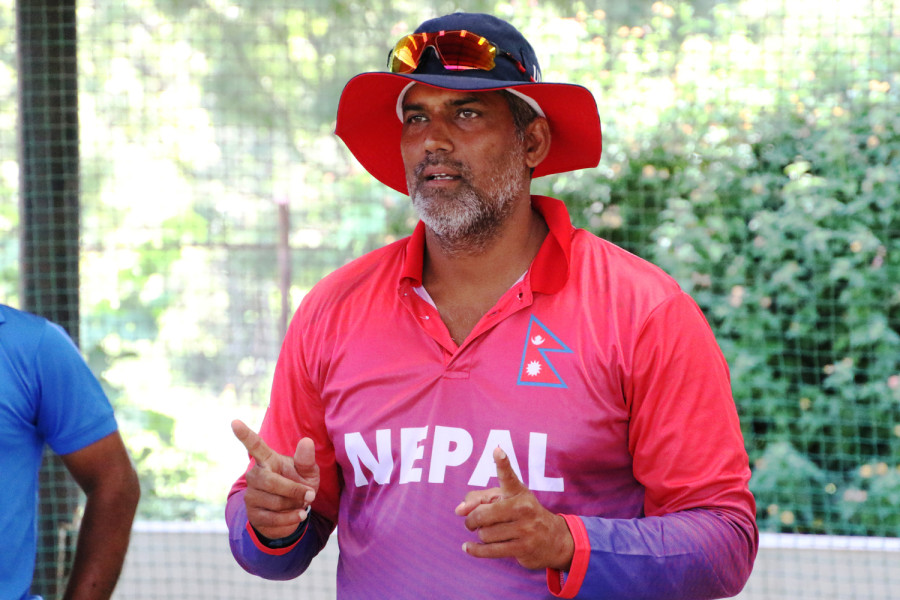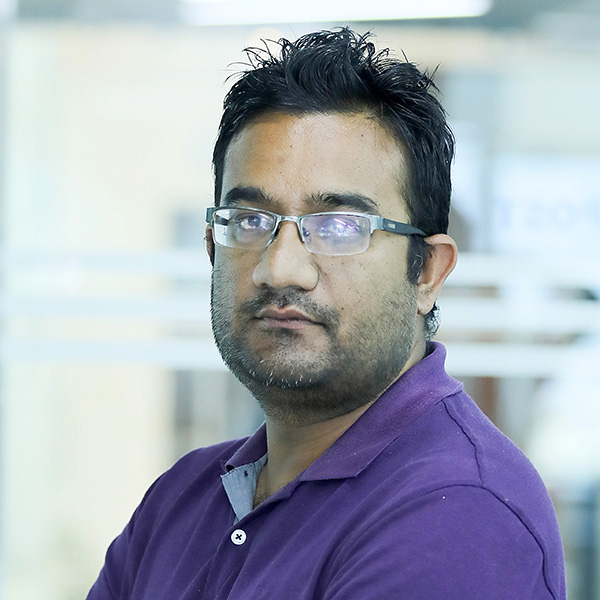Interviews
Umesh Patwal: Nepali cricket has to evolve beyond its circuit
The new coach on what it takes to build a great team.
Adarsha Dhakal
Umesh Patwal had played a crucial role as a batting consultant when Nepal claimed its first-ever One Day International Series which came against the United Arab Emirates in January this year. Four months after the historic victory, Patwal was appointed the head coach of the Nepali men’s cricket team. The Post’s Adarsha Dhakal spoke to Patwal, who has high expectations from people to establish Nepal as an ODI nation.
This interview has been condensed for clarity.
How has been the experience of heading the national team been so far?
Luckily, being here for a year (as batting consultant and Pokhara Premier League technical director) has helped me to understand how it works. The last time I was here for the UAE Tour as a batting consultant, I had planned everything in a batting perspective, especially the training patterns. Joining a couple of domestic tournaments like Everest Premier League and PPL gave me a broader perspective about the training in Nepal, which I think is not quite satisfactory. The players have specialised training, and once they are back in their homes, they don't train at all. We made sure that everyone has a specific task to do when they are not in the camp.
What exactly is happening in the national team after you stepped in?
We are trying to keep things on track. Everybody has programmes like the yo-yo test, fitness test, or skill test. We have three groups right now including the fast bowlers, spinners and batsmen. Once they start playing internationally, I want them to interact with players or coaches from other nations as well. This will help them learn different aspects of the game and give them the experience to beat some top nations like Zimbabwe, Netherlands, Ireland or others. That will provide them with confidence while playing at the bigger stage.
How do the players respond to your plans?
Earlier they were not used to being asked questions. Now they understand that I am not trying to put them down or criticise them. It's about how you should develop, ask questions, and put yourself under pressure as this game is all about handling the pressure. A lot of players now ask questions after watching themselves play. I am pretty happy because I thought this was going to take a lot of time. I don't think Nepali cricket has any problem because they understand the long-term benefits of doing well.
Back in India, when was the first time you heard about Nepali cricket?
It was long back when Anil (former opener Anil Mandal) and Gyanu (Gyanendra Malla) came to Bangalore. I knew a couple of players like Shakti (retired veteran spinner Shakti Gauchan) and Sharad (Vesawkar). Sharad was somehow associated with Payyade Cricket Club (in Mumbai) for which I played for 15 years. I met Gyanu and Anil who had come to Bangalore to train with me when I was in South African A camp, and Pubudu (Dassanayake) was the coach of the Nepali team.
How did you feel when you were approached to work as a batting consultant of the Nepali team for the ICC Cricket World Cup Qualifiers in Zimbabwe last year?
I wanted everybody to know how coaching changes one’s pattern of thinking and even helps in developing them as a person. This is something many cricketers miss these days; not only in Nepal but almost everywhere. I believe in character building because it is crucial for a cricketer. And that's what I have been doing all these years. Once you get a good cricketer, the outcome is always good, and hopefully, results will keep following.
What's the difference you see in terms of governance, skills, approach or professionalism between Nepal and the teams which are just above us, like Afghanistan?
There is a huge difference, but Afghanistan had a bigger advantage as most of their players competed in domestic cricket in Pakistan being a refugee. Most of them developed their cricket in Pakistan. Nepali players developed their cricket within the Nepali circuit which is not the best. The benefit Afghanistan got was that they played against Test cricketers and players with higher calibre. It gave them an edge to play competitive cricket.
There is no problem with Nepali cricketers in terms of skills. But if you look at the development as you play at a higher level, the mindset, game sense, planning or preparation is where we lack. We need to get that game sense on how we need to build innings. We don't have four-day Test matches, and without that, the players will not get used to batting for a longer time. Even the training patterns of the coaches are quite different. We need to make sure that coaching patterns are similar, and the training patterns are focused according to the individuals. Nepal has been following general training patterns. There could be naturally talented batsmen, but as a coach, you cannot restrict your players' natural ability to hit the ball and keep on teaching him how to hold the bat.
Is it because we don't have grassroots cricket?
Definitely. We are hopeful that having a new member secretary in the National Sports Council will be supportive. We can plan something about cricket for grassroots by getting the coaches who can develop the patterns for the young kids following the same routine of how to play a game. Match-winning is always going to be the critical part and not just making runs. It's not about trying to get yourself into the team but becoming the best player in yourself.
In the absence of a cricket governing body, how viable is it to have a National Cricket Academy and extend its branches extended to different parts of the country?
The former coach Pubudu Dassanayake came up with this concept and it was a good one. But in the absence of a governing body, Paras (national team skipper Paras Khadka), myself and other coaches can develop specific coaching patterns for certain days and take them to different districts where there are good cricketers and coaches. We can start developing two to three-day programmes around different directions. When you don't have a governing body this could be a much better option.
You have been saying that the pool in Nepali cricket is quite small, but still, the country has risen up to the ODI status. Do you think we have achieved more than what we can expect?
It's a small number of people who have been performing consistently for a long time. Paras, Gyanu, Sharad and Basanta (Regmi) have been in the heart of these achievements for more than six or seven years but there is no one to take their place. The young cricketers have been performing, but they don't carry on with the same attitude. That is why character building is so important for a team because winning the matches alone is not what we should all strive for. If we don't have more players, those from the national team will feel their place in the team is secured and they will not work hard.
Luckily, the senior guys don't do that because they know the value of their performance. We didn't qualify for the U-19 World Cup because we made a mistake in one single match (in the qualifier) and that will undoubtedly hamper the growth of Nepali cricket. Qualifying for the U-19 World Cup would have been an excellent experience for the young cricketers to get into the national team. We haven't achieved a lot of things. It's just there have been few instances like getting the ODI status and beating the UAE in an away series, but we haven't defeated teams that are above us. I would like to get into a situation where we are close to beating Afghanistan or Sri Lanka; put a good fight against teams like India.
In the current situation where the cricket governing body is under international suspension since April 2016, how feasible is it for us to initiate a Nepal 'A' team?
We have spoken about it and trying to get something from the Indian circuit. We will see if we can get our players in a four-day cricket tournament called KSCA which is run by the Karnataka State Cricket Association. We have the budget which only takes care of the national team, not even the U-19s. To have more budget to look into the 'A' players, we would need coaching staff because I won't be able to run everything. We need to do a talent hunt through the help of the National Sports Council and get other players who have been around for a long time but are not in the national team.
At the time when the national team is playing abroad, how do you think cricket should run in Nepal?
We need to have a whole season of Nepali cricket with a couple of Twenty20, 50-over and two-day games in the calendar. I don't want to go to three-day cricket straight away because if you are not used to it, the boys are going to find it difficult.




 22.12°C Kathmandu
22.12°C Kathmandu




.jpg&w=200&height=120)







